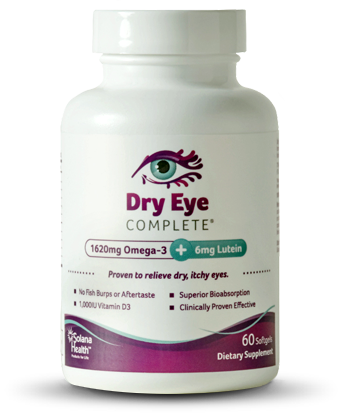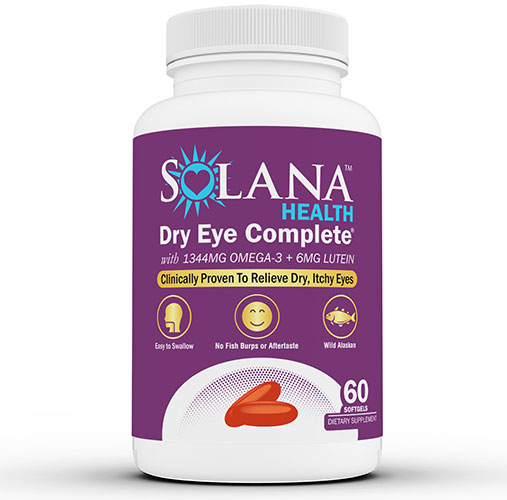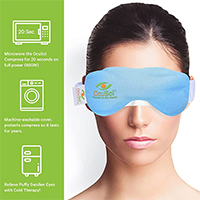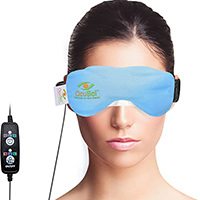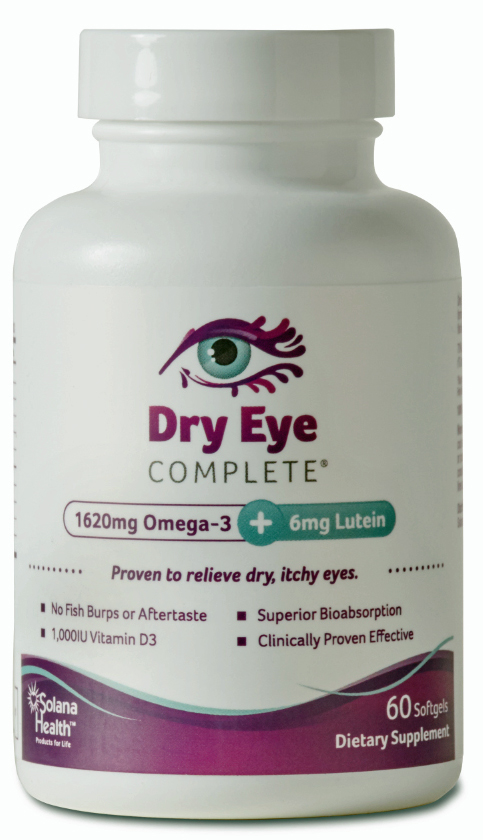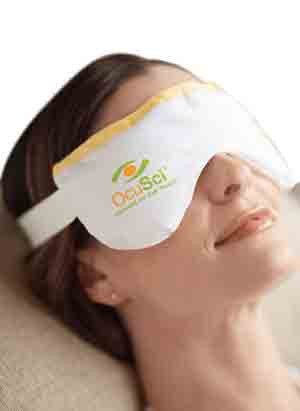Most people experience tired eyes just before they fall asleep at night. The eyelids start to droop and feel heavy. You experience a narrowing field of vision and you need to squint in order to see things properly. Eventually, you lose the fight against tiredness and you fall asleep. You may also experience tired eyes if you have been staring at a computer screen all day, or if you simply have had a long and tiring day.
Tired eyes are annoying, but very common. They are usually nothing to worry about, even though your eyes may burn and itch. By using common sense, you will be able to alleviate the condition. It is very rare for you to need medical attention if you experience tired eyes.
Causes of Tired Eyes
A number of activities can cause tired eyes. These include:
- Working behind a computer screen for a long time
- Driving a vehicle for a long drive
- Reading excessively
- Poor lighting condition
- Not enough sleep
- Watching TV for too long
- Allergies
- Wearing the wrong, or no, prescription glasses or contact lenses
- Dry eye syndrome (DES), whereby your tear glands do not produce sufficient tears, or where the tears are of poor quality
- Astigmatism, which is an abnormal curvature of the cornea, which means your vision isn’t focused properly
- Farsightedness, which means you can’t see objects close to you
- Exposure to bright lights
- Presbyopia, which is a common condition that you develop as you age. You may also experience headaches
All of the above mean that the muscles of your eyes have to work harder than normal. According to ophthalmologists, all tired eyes are actually caused by excessive dryness. You probably not have blinked enough, or have experienced DES. On average, we blink about 12 times per minute. However, when we get tired, this naturally slows to just four or five times per minute. Interestingly, when we stare at a computer screen, we also blink less.
Although you can certainly be more productive by blinking less, your eyes won’t appreciate it. Heavy computer users often develop what is known as ‘Computer Vision Syndrome‘, which can be very uncomfortable. This is a well-documented ergonomic issue that is believed to affect 90% of computer users, or some 150 to 200 million people in this country. Additionally, it is believed that around 10 million eye examinations by primary physicians are related to Computer Vision Syndrome, and it is expected that more people will start to experience the condition as the prevalence of digital devices continues to rise.
It is also possible that tired eyes are indicative of a different condition. If you also experience eye problems such as significant vision change, double vision, or discomfort, as well as headaches, then you may want to seek medical attention. While it is most likely that there is no real problem, it is always better to be safe than sorry. After all, your eyes are precious.
Symptoms of Tired Eyes
When you experience tired eyes, you will probably notice some or all of these symptoms:
- Difficulty focusing
- Irritated, red, or sore eyes
- Double or blurred vision
- Pain in the back, shoulders, or neck
- Increased light sensitivity, also known as photophobia
- Watery or dry eyes
- Feeling tired
- Feeling like the eyelids are heavy
When you experience these symptoms, it becomes impossible to be as productive as before. You may also notice that if you don’t get enough sleep, the symptoms of tired eyes start to appear sooner and earlier during the day. This is because sleep is essential to allow your eyes to replenish the various essential nutrients they need to stay focused during the day. Persistent eye irritation is common in people who dont have enough sleep.
How to Prevent Tired Eyes
It is usually very easy to prevent eye fatigue. It is about making a few easy changes to your personal habits and your work environment. To prevent tired eyes, you should:
- Make sure you sleep enough.
- Be aware of any eye allergies you might have and learn how to avoid the triggers. If you do suffer an allergy attack, you must make sure you have the right treatment.
- Take a break from the computer once an hour at least when you are at work.
- Make sure your screen is around 26 inches away from your eyes, and that it is placed just below your line of sight. Also make sure your screen is clean and free from fingerprints and dust. Consider installing a glare filter and pick a screen that can swivel and tilt.
- Adjust the lighting until you find a level that makes your eyes feel comfortable.
- If you have to do work that requires you to stare at items up close, make sure that you take a break every few minutes by focusing on something that is far away. This will relax your eyes.
- Give your eyes some TLC and allow them to have a rest.
- Visit your eye doctor to check whether your prescription is still up to date and also the overall health of your eyes.
- Use adjustable chairs.
- Have a document holder on the side of your computer screen, so you can look away every once in a while.
- Always remember the 20-20-20 rule, which means that once every 20 minutes, you should spend 20 seconds looking at something 20 feet away.
- Use post-it notes to remind yourself to blink.
- Soak a clean washcloth in some warm water, close your eyes, and place it over your eyes for about 10 minutes.
- Purchase over the counter artificial tears so that you can moisturize your eyes when they start to get dry.
- Install air filters in all rooms you spend a lot of time in with your eyes open. Consider a humidifier or dehumidifier as well, depending on the overall room conditions.
How to Treat Tired Eyes
For all your best efforts and intentions, it is unlikely that you will be able to completely prevent tired eyes from occurring. Hence, you will also need to know the things you can do in order to treat your eyes once they start to feel tired. These include:
- Closing your eyes.
- Going to sleep.
- Taking your contacts out.
Dealing with the Puffiness
When your eyes get tired, they will also start to appear puffy. This is unsightly, and it can last anything from just a couple of minutes to the rest of the day. Puffy eyes are cosmetically unappealing, but there are a few things that you can do. Best of all, these are all simple home remedies that will cost you nothing, or very little:
- Use an ice pack. Unfortunately, this can be quite uncomfortable as ice packs are often a bit too big to be placed on the eyes.
- Use cucumbers. They do not have the anti-inflammatory properties that some people would like you to believe but because they are made mostly of water, and because they have a roundish shape, they are a perfect replacement for ice packs. Keep a cucumber in the fridge for a while and then use it to treat your eyes.
- Use bags of frozen vegetables. A lot of people use baby peas, because they are small enough to fill up any space around your eyes. Do make sure that you don’t apply the plastic bag directly to your eye, however, as it could freeze together. You should notice that the swelling of your eyes starts to go down after just 15 minutes.
- Use whole milk. While milk contains amino acids, protein, vitamins A and D, and lactic acid, these can all help to reduce the symptoms of eye irritation, as well as puffiness. Best is to use iced milk. Simply saturate a clean wash cloth with milk and leave it on the eyes for a quarter of an hour.
Relief Exercises
If you are at work, for instance, you probably won’t be able to engage in the activities described above. After all, applying cucumber to your eyes in the middle of the working day, is certainly not acceptable. There are, however, a few exercises that you can do at your desk to relieve the symptoms of tired eyes. Do, however, always wash your hands first before you touch your eyes. One of the things you can do is keep your head straight and look at a wall in the distance, then move your eyes and spell your full name with the movement of your eyes only. Do also challenge yourself to blink more often. Try actually counting how often you blink.
If you find that your tired eyes persist, then you may want to have an eye examination performed. You must firstly check whether your prescription is still up to date, but an ophthalmologist will also be able to find out whether there are any other underlying conditions that may need to be treated. You could, for instance, have an imbalance in the muscles of your eyes.
Resources and References:
- Computers and Your Eyes – Information on the effects of computers on the eyes. (Prevent Blindness America)
- Computers, Digital Services and Eye Strain – Effects of the use of computers and digital services on on the eyes. (American Academy of Ophthalmology)

